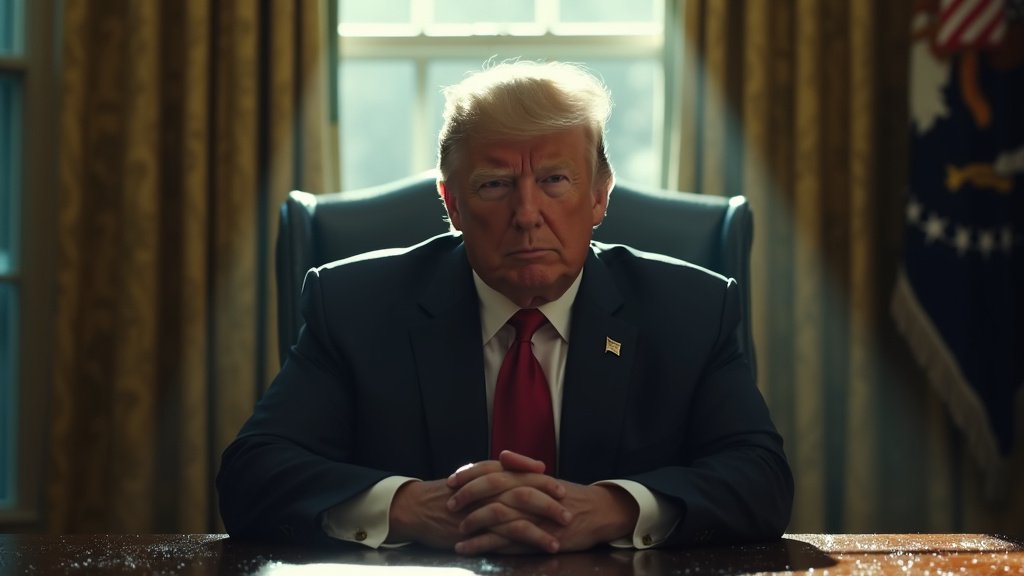Washington, D.C. — A potential federal government shutdown was successfully averted this weekend after President Donald Trump signed a stopgap funding measure into law on Saturday, March 16, 2025. The legislative action followed the bill’s passage in the U.S. Senate the previous day, Friday, March 15, by a vote of 54-46.
While the passage of the measure secured government funding temporarily, it has simultaneously ignited significant political turmoil within the Democratic party. Senate Minority Leader Chuck Schumer, a Democrat from New York, has become the central figure of intense criticism and outright fury from numerous Democratic lawmakers and particularly from young Democrats for his role in supporting and facilitating the passage of the legislation.
Averting the Shutdown
The stopgap funding bill, largely characterized as being backed by Republicans, represented a critical legislative maneuver to prevent a lapse in government appropriations. The bipartisan support indicated by the 54-46 Senate vote underscored a shared imperative among a majority of senators to keep federal agencies operational, despite underlying disagreements on fiscal priorities and spending levels. The bill’s journey through Congress culminated swiftly with President Trump’s signature on Saturday, bringing an immediate end to the near-term threat of a shutdown.
Democratic Divisions Emerge
Schumer’s decision to support the Republican-favored funding measure has exposed deep fissures within the Democratic ranks. Critics argue that the Minority Leader conceded too much ground to the opposing party, failing to leverage the shutdown deadline to secure Democratic priorities or resist Republican demands. The anger appears particularly pronounced among the party’s younger members and progressive factions, who voiced significant discontent over the legislative compromise facilitated by their leader.
Sources close to the deliberations indicated that many Democrats felt betrayed by the swift passage of the bill with Schumer’s backing, viewing it as a missed opportunity or an unnecessary capitulation. The level of fury reported among certain segments of the party highlights a growing tension between the pragmatic considerations of legislative leadership and the fervent demands of the party’s base for ideological confrontation.
Schumer’s Justification
In the wake of the controversy, reports emerged detailing Schumer’s rationale for his contentious decision. He reportedly justified his support for the stopgap measure by stating his belief that allowing a government shutdown to occur would have been a worse outcome. According to these reports, Schumer contended that a shutdown would have provided a more opportune environment for President Trump and Elon Musk’s ‘DOGE operation’ to enact significant personnel firings and agency closures across the federal government.
This specific justification, referencing both the former President and the tech entrepreneur alongside an unusual descriptor, has itself become a point of discussion, underscoring the complex and perhaps unconventional strategic considerations that reportedly underpinned Schumer’s legislative approach in this instance. The detail about the ‘DOGE operation’ is particularly noteworthy as an explanation for avoiding a shutdown, as reported by sources familiar with Schumer’s thinking.
Calls for Leadership Change
The immediate aftermath of the vote has seen a palpable rise in calls for Senator Schumer to step down from his position as the Democratic Senate leader. The mounting pressure reflects the depth of dissatisfaction felt by a significant portion of the Democratic caucus and its external supporters. Critics argue that his leadership has failed to adequately represent the party’s interests in high-stakes negotiations and that a change is necessary to unify the party and adopt a more assertive stance against Republican initiatives.
While Schumer has weathered internal dissent before, the intensity and breadth of the current backlash, particularly from younger Democrats and vocal lawmakers, pose a significant challenge to his continued leadership. The coming weeks are expected to reveal whether this latest controversy will translate into a concrete challenge to his role or if he can navigate the internal opposition and consolidate his position.












